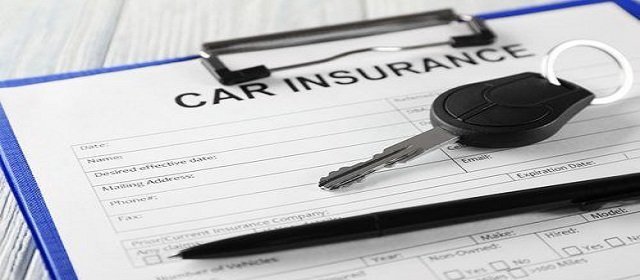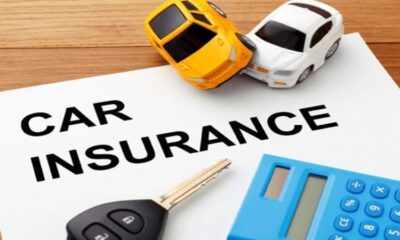World
North Carolina Car Insurance Laws

Nearly all the states in the United States require that your car is insured, except for Virginia, Mississippi, and New Hampshire. However, each jurisdiction in the country has its own peculiar laws. In North Carolina, for example, before you are issued a license plate for your vehicle, you must show proof of liability car insurance. Besides, the State is regarded as a “fault” state when it comes to car insurance. What this simply means if that a driver’s insurance company may decide not to pay for damages if he or she is considered to be fully or partly responsible for an accident. As a result, residents are compelled to familiarize themselves with the State’s car insurance laws before they drive their cars around. This article will provide all you need to know about North Carolina Car Insurance Laws.
Auto insurance requirements in North Carolina
In North Carolina, the government requires that you have at least one of three auto insurance options. These include regular auto insurance, uninsured motorist insurance, and underinsured motorist insurance. So, what do these each of these options mean?
The regular auto insurance refers to the kind that is expected of a car. It could be as basic as the minimum car insurance. All that is needed is that you have insurance for your car. Drivers in this state are expected to show their insurance ID cards if a law enforcement official requests to see it.
Apart from having minimum regular insurance, drivers in North Carolina are required to also carry uninsured and underinsured motorist insurance coverage. With underinsured insurance, you get sufficient coverage if you are involved in an accident with an “at fault” driver whose insurance cannot pay all the costs. Likewise, this uninsured insurance covers you, your passengers, and the car if involved in an accident with an uninsured person.
If you do not have any of the above, North Carolina car insurance laws permit a number of other options in exchange for a Certificate of Insurance (COI). A COI refers to a single piece of document that provides proof of insurance. The requirement for a COI includes surety bond, self-insurance, real estate bond, and security deposit.
When submitting your documents for a driver’s license in North Carolina, you might be asked to file the Form DL-123.
What are North Carolina state-mandated car insurance limits?
Just like other states in the country, North Carolina has State-mandated car insurance limits. The following are the required coverage limits:
Bodily Injury Liability coverage: The first aspect of this is $30,000 of coverage per person. This requires that a minimum of $30,000 is payable from your policy to sort out of the medical bills of the other driver is involved in the accident. The second aspect is $60,000 of coverage per accident. In other words, the liability incurred will cover that amount or more as payment for medical bills of all those injured in the accident.
Property damage liability coverage: This entails $25,000 of coverage per accident. No matter the extent of damage, that is the maximum amount that the law mandates you to pay for damages to the other driver’s vehicle.
Uninsured Motorist bodily damage: The first aspect of this is a requirement of a minimum of $30,000 per person. The other aspect is a limit of $60,000 per accident for bodily damage.
Underinsured/Uninsured motorist property damage: This applies to the damage done to your vehicle by an underinsured or uninsured vehicle. The legal requirement accruable to you is $25, 000.
Do North Carolina’s insurance minimums provide enough coverage?
The minimum auto insurance policies offered by most providers in North Carolina provide enough coverage. This is because they are mandated to cover bodily injuries of all parties that are not at fault. Similarly, damages done to the vehicles of the party that is not at fault are covered. Moreover, approximately 90% of residents of this State drive with auto insurance. The only “but” to North Carolina’s insurance minimums is that some people will always press charges to determine that they are not at fault.
North Carolina’s penalties for driving without proof of insurance
Driving without car insurance in North Carolina is somewhat a serious offense. This is because you could be charged with a Class 3 misdemeanor offense if you are caught without proof of insurance. The implication of this is that you will be given a permanent criminal record if convicted. And, of course, having a criminal record is always bad news for many reasons. It could limit your chances of employment, getting a green card, and child custody rights to mention a few.
Therefore, if you are thinking of procuring a personal vehicle in North Carolina, put car insurance atop your priority list.
Optional car insurance coverage in North Carolina
By and large, North Carolina defers to certain other optional auto insurance. For example, if you can make available to the Commissioner of Motor Vehicles documents such as real estate bond, surety bond, security deposit, or self-insurance, you could be issued a Certificate of Insurance.
-

 Sports4 weeks ago
Sports4 weeks agoFIFA Club World Cup 2025: Complete List of Qualified Teams and Groups
-

 Sports3 weeks ago
Sports3 weeks agoAl Ahly vs Inter Miami, 2025 FIFA Club World Cup – Preview, Prediction, Predicted Lineups and How to Watch
-
Health1 week ago
Back to Roots: Ayurveda Offers Natural Cure for Common Hair Woes
-

 Tech2 weeks ago
Tech2 weeks agoFrom Soil to Silicon: The Rise of Agriculture AI and Drone Innovations in 2025
-

 Sports3 weeks ago
Sports3 weeks agoFIVB Men’s Volleyball Nations League 2025: Full Schedule, Fixtures, Format, Teams, Pools and How to Watch
-

 Science4 weeks ago
Science4 weeks agoEverything You Need to Know about Skywatching in June 2025: Full Moon, New Moon, Arietid Meteors, and Planetary Marvels
-

 Startup3 weeks ago
Startup3 weeks agoHow Instagram Is Driving Global Social Media Marketing Trends
-

 Television4 weeks ago
Television4 weeks agoTribeca Festival 2025: Date, Time, Lineups, Performances, Tickets and How to Watch

























